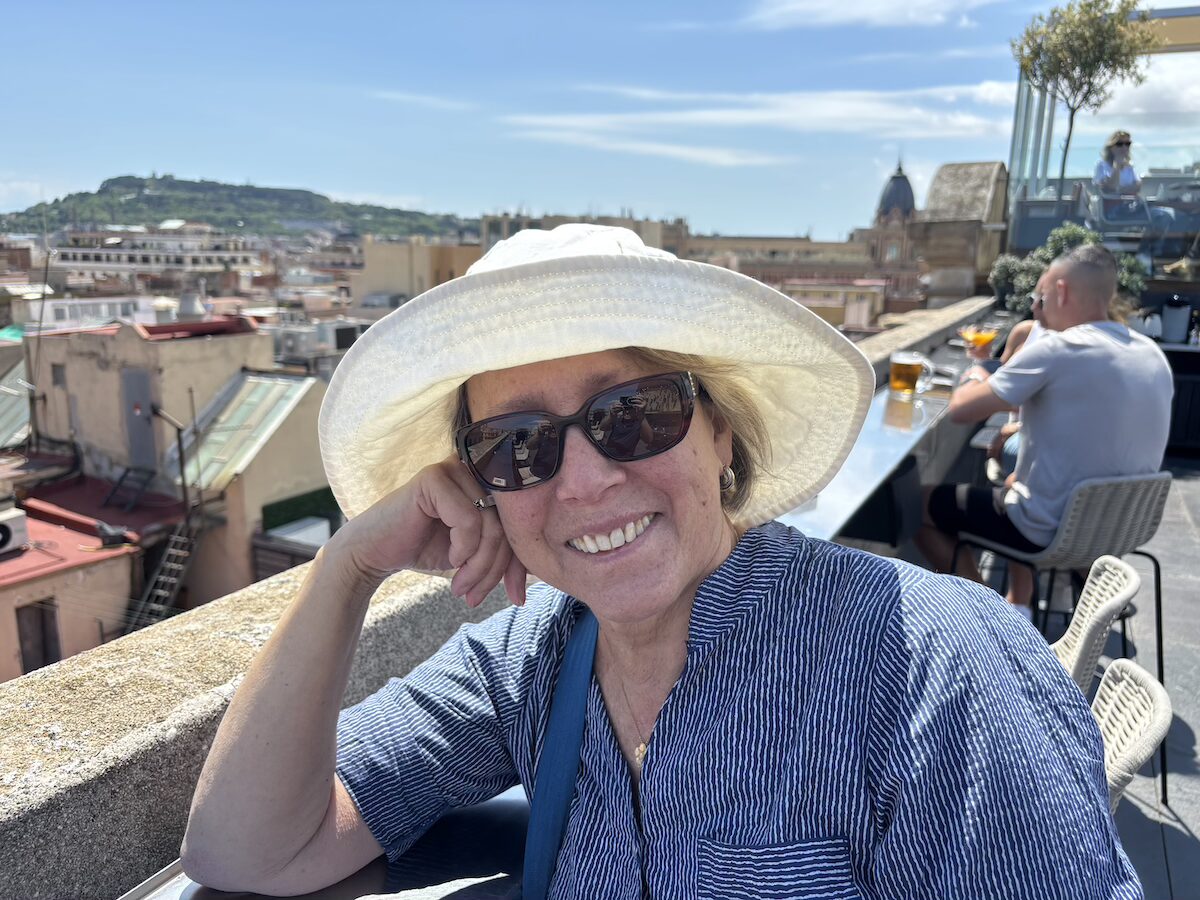Dr. Ron Chandler is a 2013 Ann Schreiber Mentored Investigator Award recipient. In this interview with OCRF’s Sarah DeFeo, Dr. Chandler discusses his research and what it means to receive a grant from OCRF.
Sarah DeFeo: Tell us about yourself.
Ron Chandler: I am the first Ph.D. scientist in my family, although my Grandpa and Dad both fostered my curiosity for the natural and mechanical world. I grew up in East Texas surrounded by a close-knit family who still farms century-old tracts of land. My summers were full of adventure, discovery and a bit of mischief as I was given the opportunity to explore outside and tinker. I spent countless hours running a shrimp boat with my Dad or fishing and felt most at home outside or in the water.
I met my wife in graduate school: we did our Ph.D. thesis research within the same lab, worked together all day and into the night, and even co-authored several papers. We had our first daughter while in graduate school. After graduating, we moved our new family to North Carolina, so we could pursue postdoctoral fellowships. She studies how common pesticides affect human fetal health. Our second daughter was born shortly after we settled in North Carolina. Our hobbies (outside of the lab!) include being great parents, hiking, Crossfit fitness, spending weekends at the beach, and all things to do with animals.
SD: Did you always want to be a scientist?
RC: Well I’ve always had a love for science. Growing up, my friends always referred to my dad as “Mr. Wizard” because he was always tinkering with things. I think his engineering background and prowess for figuring out how things worked rubbed-off on me. Like him, I’ve always had a knack for these things.
After attending Tennessee Technological University, I decided to take a research technician position in a developmental genetics lab at Vanderbilt University to decide whether I wanted to pursue medical school or graduate school. At Vanderbilt I discovered the world of scientific research and never looked back. Soon, I was a graduate student in the Interdisciplinary Graduate Program (IGP). My time at Vanderbilt as a graduate student was unparalleled. The research was fascinating, the interdepartmental interactions expanded my horizons, and some of the best conversations I had were with fellow graduate students over dinner at Arnold’s Country Kitchen. I formed a keen appreciation for disease-focused, hypothesis-driven research that remains the backbone of my research today.
SD: What motivated you to enter ovarian cancer research? What does your research focus on?
RC: Since I started down this path, I’ve always had an interest in pursuing cancer research. Many of my family members have been stricken with some form of cancer at some point in their lives, including ovarian. However, the research path I took throughout graduate school and into my postdoc was not focused on any particular cancer.
Scientists are driven by discovery, and I believe that all scientists will find their muse at some point in their career. My muse is ovarian cancer. Although my path to ovarian cancer research was not a direct one, my diverse background allows me think non-traditionally, and pursue novel approaches. The entire female reproductive system remodels itself in a cyclical manner, often undergoing rounds to “good” inflammation. I’m particularly interested in how these “good” inflammatory processes lead to “bad” ones (endometriosis, for example) and how this sequence of events leads to the formation of ovarian tumors. I think we can model these steps in mice, and that’s the focus of my research.
SD: What do you like best about your job?
RC: Knowing that every day I’m passionate about my career and the pursuit of discovery is one of the best parts. My job challenges me on a daily basis and I welcome that because the goal of preventing ovarian cancer from taking another life moves me. Meeting families affected by cancer has been wonderful because it reminds me that my purpose extends beyond those I know personally. Scientific research is a winding, detoured road full of shortcuts and pitfalls but the journey fulfills me because I’ve obtained the tools I need to navigate the challenges and questions ahead.
Ronald Chandler, Ph.D. is currently a postdoctoral fellow in the Department of Genetics at the University of North Carolina at Chapel Hill. Dr. Chandler obtained a Bachelor of Science degree in Biology and Chemistry from Tennessee Technological University (Cookeville, TN) and Doctor of Philosophy in Molecular Physiology and Biophysics from Vanderbilt University (Nashville, TN). His Ph.D. thesis research focused on Bone Morphogenetic Protein 2 (BMP2) transcriptional regulation and function in osteoblast progenitors. His postdoctoral research in the Laboratory of Dr. Terry Magnuson involves mechanistic structure-function studies on the role of ARID1A within the SWI/SNF chromatin-remodeling complex using the mouse as a genetic model system. Dr. Chandler’s research interests include the role of chromatin structure and its epigenetic regulation in ovarian tumor suppression and endometriosis as a neoplastic process. He received a prestigious American Cancer Society Postdoctoral Fellowship award in 2009.


